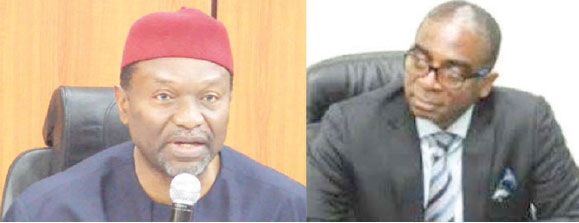Stories by Foster Obi
Motoring/Maritime Editor
Abuja preaches diversification to boost the economy but investigation shows that those involved in non-oil exports are not finding things easy.
Problems range from inadequate and decaying infrastructure, financing, poor implementation of export incentives and support programmes, over-regulation, underdeveloped regional markets, policy instability, capital flight, marketing, and pricing.
Experts say the constraints of marketing Nigeria’s agricultural produce are closely related to poor infrastructure and inefficient marketing.
The small-scale farmer has poor market arrangement for his produce due to poor infrastructure, poor communication network, and low access to logistics and inputs support.
Also, the absence of rural feeder roads hinders produce evacuation from collection points and adds huge transportation costs.
“A lack of warehouse and other forms of storage facilities result in hung post harvest losses which for small scale farmers are conservatively estimated at between 20 and 40 per cent of total output for tree crops and as a high as 80 per cent for fruits and other perishables,” experts said.
These losses are among the highest in the world.
The situation is worsened by the attitude of the European Union (EU) to produce from Nigeria.
Stakeholders lamented that the rejection of some of Nigeria’s exported food items by the EU is detrimental to the agricultural sector and is counterproductive to the economy.
According to them, plans to make agriculture a major revenue earner for the country may suffer a setback if foreign countries continue to reject Nigerian produce.
This declaration was made at an international symposium on mycotoxins in nuts, dried fruits and cereals, organised by the International Society for Horticultural Science in collaboration with the Raw Materials Research and Development Council in Abuja.
The symposium had over 140 national and international participants from the academia, industries, research institutions, and farmers’ associations. Participants acknowledged that Nigerian agricultural export produce was facing some level of rejection internationally.
According to them, this may lead to poor revenue generation and reduce the sector’s contribution Gross Domestic Product (GDP) if not addressed quickly.
The fears expressed by these stakeholders are worsened by the ban the EU slammed on Nigerian produce.
While Nigerians are looking forward to getting the issue resolved, the Coordinating Director, Nigeria Agricultural Quarantine Service (NAQS), Vincent Isegbe, disclosed that the EU has extended its ban on importation of dried beans from Nigeria by three years.
Ishegbe lamented that the extension came when the federal government and its relevant agencies were working to ensure the June dateline earlier given by the EU to lift the ban was met.
The EU banned importation of Nigeria’s dried beans in June 2015 on the grounds that the produce contained high level of pesticide dangerous to human health.
The EU accused Nigeria of not doing enough to lift the ban during the period of suspension.
“The continued presence of dichlorvos (pesticide) in dried beans imported from Nigeria and maximum residue levels of pesticides shows that compliance with food law requirement as regards pesticide residual cannot be achieved in the short term,” Isegbe said, reading from an EU journal.
“The duration of the importation prohibition should, therefore, be extended for an additional period of three years to allow Nigeria implement the appropriate risk-management measure and provide required guarantees.”
Isegbe said the extension should serve as an opportunity for stakeholders to correct the mistake.
He called for the sensitisation of stakeholders, especially farmers, on corrective measures to avoid such future embarrassment.
The government has expressed its preparedness to tackle impediments confronting the export sector.
Budget and National Planning Minister, Udoma Udo Udoma, gave the assurance when members of the Organised Private Sector Exporters Association met with him in his office and enumerated challenges confronting Nigerian exporters.
Udoma said the present administration would address their plight.
A statement issued by the Director (Information) Ministry of Budget and National Planning, Charles Dafe, quoted Udoma as saying: “We understand all issues your association has raised, like difficulties in securing foreign exchange, decline in Nigerian export, inadequate export incentive and export grant.
“The government is working towards reviewing our economy and business environment, we will soon provide a clear and properly coordinated policies that will increase local production of goods, especially Nigerian export goods.
“Importantly, your association as non-oil sector is an economic diversification vital pillar fully required by this administration and must be fully supported.”
Udoma also explained that the 2016 budget is structured to have 30 per cent capital allocation for Nigerian infrastructural growth such as components that will grow the economy and promote exports.
Executive Secretary and leader of the delegation, Jaiyeola Olarenwaju, said the challenges in his sector have led to a drop in manufacturing and exports, which increased unemployment.
He requested for the payment of the backlog of export expansion grant.













